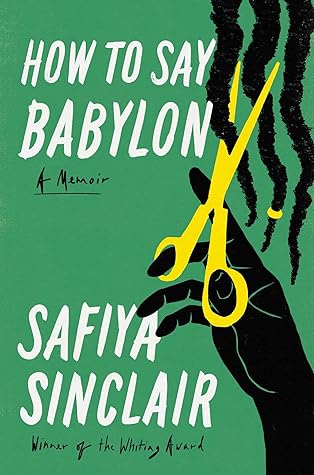More on this book
Community
Kindle Notes & Highlights
Where I would watch the men in my family grow mighty while the women shrunk. Where tonight, after years of diminishment under his shadow, I refused to shrink anymore.
dream of liberation that would only be realized by breaking the shackles of colonization, and unifying the African diaspora.
From those psalms of Jewish exile came the Rastafari’s name for the systemically racist state and imperial forces that had hounded, hunted, and downpressed them: Babylon.
Zion, the Rastafari’s name for both the promise of liberation and the soil of Africa, to where they believed it was their destiny to repatriate.
Next to the airport, looming along the borders of our village, were hotels with high walls made of pink marble and coral stone, flanked on top by broke-glass bottles, their sharp edges catching the light in cruel warning: To live in paradise is to be reminded how little you can afford it.
This was paradise—where neither our history nor our land belonged to us.
Today, no stretch of beach in Montego Bay belongs to its Black citizens except for White House. My great-grandfather had left the land title and deed so coiled in coral bone, so swamped under sea kelp and brine, that no hotelier could reach it. This little hidden village by the sea, this beachside, was still ours, only.
her laughter naked and familiar.
Rastafari,
Like many young women born into poverty, the scarcity of her choices made her easy prey.
On her darkest days, it was always books that gave my mother’s world a clear sort of hope. She couldn’t leave, but she could still escape.
He understood then what Rastas had been saying all along—systemic injustice across the world flowed from one massive, interconnected, and malevolent source, the rotting heart of all iniquity: what the Rastafari call Babylon.
What the tourists couldn’t discern, as they drank and ate dinner while my father sang and flashed his dreadlocks onstage, was his true motivation for singing. Night after night he sang to burn down Babylon, which was them.
A rebellious woman like her was “an instrument of Babylon,” as I would eventually come to learn for myself—and though I was too young to understand their quarrels then, as I grew older, her refusal to be diminished would subtly come to shape my own sense of place in this world.
There was more than one way to be lost, more than one way to be saved.
Each of our names was like an amulet, worn against the known and unknown evils of the day.
While my father molded our view of the wicked world and its hidden history, my mother shaped our love of learning and our sense of wonder. While he warned us of Babylon, she showed us Zion.
A book, I soon learned, was time travel. Each page held irrefutable power.
I spent most of my girlhood this way, longing to feel something miraculous.
Their wants pursed and shapeless, their white tie-heads coming undone.
anthracite
Do you not see how necessary a world of pains and troubles is to school an intelligence and make it a soul? —JOHN KEATS
Instead, he moved cautious and smiling in the face of Babylon, and saved all his fire for us.
I was so busy being the budgerigar that I hadn’t noticed the stone.
How a shame that was never mine could haunt me like a bloodhound.
born in babylon both nonwhite and woman what did i see to be except myself? —LUCILLE CLIFTON
There is no American dream without American massacre.
Women who had survived. The women who made me.


